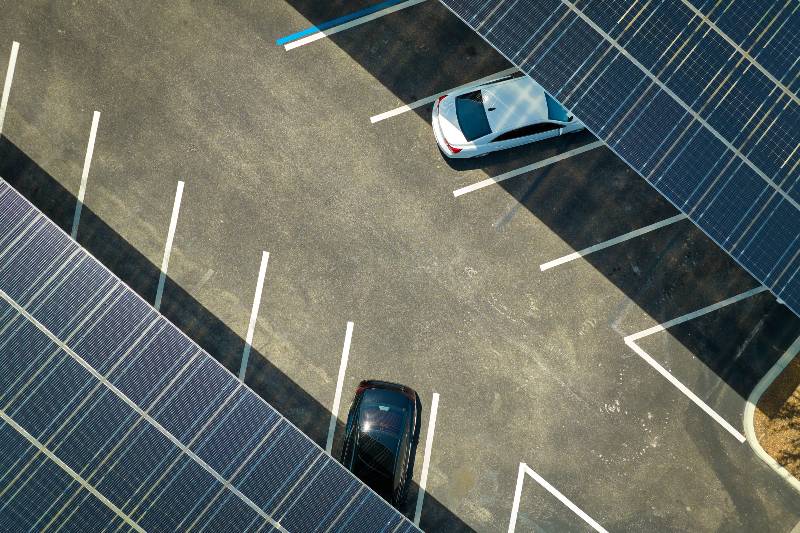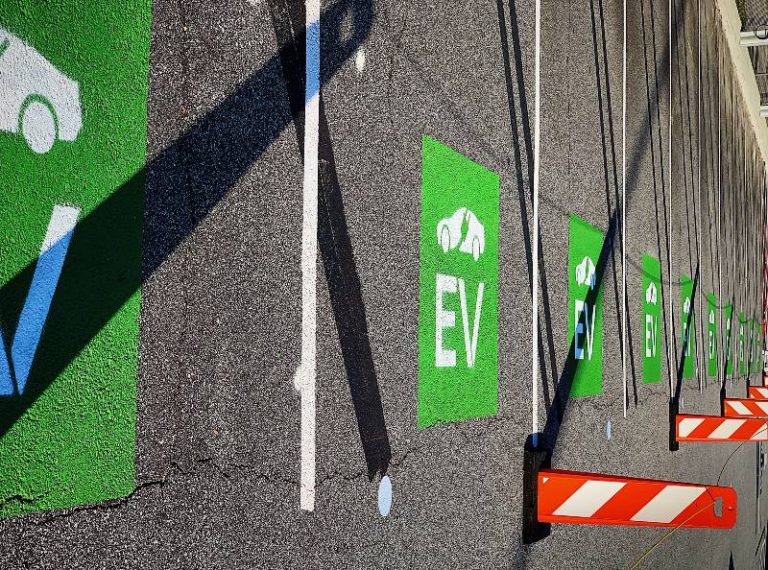Solar-Powered Electric Cars: The New Era of Clean Transportation
Making the switch to renewable energy is becoming increasingly important in today’s world and, for many, electric cars are seen as one of the most promising technologies. As solar power develops further, so too could its potential to revolutionize how cars are powered. This blog post will discuss why solar-powered electric cars may be the key to a more sustainable future – from advancements in technology and infrastructure needed, to how they might improve our lives day-to-day. With global trends showing an increasing demand for greener options, find out what lies ahead with this comprehensive guide to Solar Powered Electric Cars!
According to projections, the solar vehicle industry will be worth $329.5 million in 2023 and is expected to grow to $4,087.6 million by 2030, which is a 43.3% compounded annual growth rate. North America is expected to see the highest revenue growth. It is anticipated that the region will contribute $138.5 million in 2023 and will reach $1,819.4 million by 2030, with a 44.5% compounded annual growth rate.
Key Takeaways
- Electric cars powered by solar energy are a sustainable and affordable option to traditional gas-powered vehicles. They have the potential to provide energy independence and reduce carbon emissions.
- The growth of solar-powered electric cars is being driven by advancements in solar panel and battery technology, which include improvements in materials, efficiency, and storage capacity.
- Although infrastructure, manufacturing costs, and energy grids still present challenges, the solar-powered electric car industry shows promising growth and innovation for the future.
Current State of Solar-Powered Electric Cars
Technological Advancements
The greenhouse gas emissions from the transportation sector are significant. While some countries have switched to electric vehicles that run on renewable energy, others don’t have access to renewable energy sources on the grid. Furthermore, remote areas often have limited grid access. Using solar-powered vehicles appears to be a promising solution to this problem as it eliminates the need for fossil fuels.
Aperta Motors is currently testing its new three-wheeler car design, called Aperta. These cars are equipped with 34 square feet of solar panels that can power up to 40 miles on a sunny day. Safety tests and test drives are currently being conducted by the company.
The driving range of solar-powered vehicles would decrease in overcast or nighttime conditions as less solar energy is available. The technology for this type of vehicle is still new and requires further improvements and safety features before it can achieve commercial success.
Aperta Motors’ co-founders, Steve Fambro, and Chris Anthony, aimed to develop a solar-powered vehicle that would be more efficient than conventional cars and hybrids that burn gasoline. Traditional vehicles lose up to 80% of energy through heat, resistance from the wind, braking, and rolling. Conversely, only 20% of the generated energy is utilized for propulsion.
Hybrids also experience energy losses of around 70%. However, electric vehicles can achieve an efficiency of 60-70%, depending on factors such as the technology used, time of day, and location of the vehicle.
The Aperta electric vehicle has a unique design that enables it to use 90% of its total energy capacity for vehicle movement, while most other electric vehicles typically waste around 30% of their energy due to resistance and converting currents.
The Aptera has numerous benefits as a new car design. Its aerodynamic shape reduces friction, drag, and resistance which is a feature uncommon in most vehicles. The slippery texture of the car also allows small and light objects to slide off easily from the mirror or the car’s surface.
Furthermore, the car has a lightweight frame that uses less energy to move it. It can also automatically dissipate heat from both the inside and outside of the car when parked. In addition, it can be fully charged ten times faster than a typical electric vehicle. Lastly, it only needs a few solar panels to power it
Challenges in Implementation
Solar panel cars have some potential benefits, but they also face several challenges that need to be resolved for them to become a feasible transportation option for most individuals. Generating sufficient energy with solar panels is a major challenge. This means that most solar panel variants require a backup battery or alternative power sources to function during periods of insufficient sunlight.
Solar panel cars can be costly to manufacture and buy, which can be a barrier for consumers in developing countries or those with low incomes. This is due to the fact that they are a new technology and thus relatively expensive.
Advantages of Solar-Powered Electric Cars
Sustainability and Environment friendly
As we’re getting more aware of our impact on the environment, many folks are switching to solar-powered electric cars as a green transportation option. The best part? It’ll slash your dependence on fossil fuels while putting out fewer emissions than traditional gas-powered cars.
Plus, solar-powered electric cars are super affordable in the long run – think big savings on gas and maintenance expenses.
Cost-effectiveness
As technology advances, so does the way we power our vehicles. One of the newest developments in the automobile industry is the use of solar power to fuel electric cars. The biggest advantage of solar-powered electric cars is their cost-effectiveness in the long run. Once you invest in the initial purchase and installation of solar panels, the sun’s energy is free and renewable, providing an endless supply of power to your vehicle.
Independence from Fossil Fuels
As the world continues to look for alternative sources of energy, solar-powered electric cars have emerged as an extremely viable and reliable option. With the ability to harness energy directly from the sun, these cars have significantly reduced the need for fossil fuels and have helped in curbing carbon emissions. One of the greatest advantages of solar-powered electric cars is their independence from traditional sources of energy, ensuring that owners have access to an effective and efficient means of transportation without worrying about fuel availability or cost. Additionally, these cars have shown to be much more cost-effective in the long run, as they require minimal maintenance while providing great energy efficiency.
Future of Solar-Powered Electric Cars
Trends in Solar-Powered Electric Cars
With concerns about climate change on the rise, the popularity of solar-powered electric cars is on the rise as well. It’s not hard to see why – lower usage and maintenance costs make them an attractive option for environmentally conscious consumers. And with predictions for a significant increase in availability in the next few years, it seems that solar-powered cars are here to stay. By 2022, the number of solar-powered cars on the market is expected to reach over 1,600, with an impressive yearly growth rate of 15.2%.
Innovations in Solar Panels and Battery Technology
The world is experiencing a drastic shift towards a sustainable future, and one prominent industry-leading that change is the renewable energy sector. Solar-powered electric cars, in particular, have been gaining a lot of attention lately, and it’s not hard to understand why. With continued innovations in technology such as solid-state batteries, grid integration, and recycling, the once-niche market is set to become a mainstream alternative and is expected to significantly impact the automotive industry. Not only are these developments making electric vehicles more eco-friendly, but they are also increasing their efficiency and making them more practical for everyday use. Surely, the future looks bright for solar-powered electric cars!
Growth and Impact on the Automotive Industry
There’s growing potential for solar-powered electric cars to shake up the automotive industry and revolutionize transportation. In response to the increasing demand for sustainable energy solutions, car manufacturers are investing in solar-powered electric cars and finding innovative ways to incorporate solar panels and battery technology into their designs.
The emergence of solar-powered electric cars is spurring advancements in other aspects of the automotive industry, including energy storage and charging infrastructure. Due to the increasing prevalence of renewable energy sources, there is a greater demand for efficient methods of energy storage and distribution, and electric vehicles can play a significant role in facilitating this transition.
Solar-powered electric cars not only have environmental benefits but also provide car manufacturers with opportunities to stand out in a competitive market. The increasing environmental awareness among consumers drives the demand for sustainable and innovative transportation solutions, and solar-powered electric cars are well-positioned to cater to this demand.
Challenges and Limitations
Infrastructure and Energy Grids
For solar-powered electric cars to be widely used, there’s a major challenge of needing supportive infrastructure and energy grids. Unlike traditional fossil fuel vehicles, electric cars need charging stations and compatible infrastructure. Therefore, a significant investment is needed in building new charging infrastructure and updating existing energy grids to support renewable energy sources.
Manufacturing and Production Costs
The production and manufacturing costs of solar-powered electric cars can be quite high due to the expenses involved in creating solar panels and battery systems. As a result, these costs can make electric cars more expensive than traditional vehicles. This can make it difficult for people in developing countries to afford them, where cost is a major consideration.
Overcoming the challenges and limitations of solar-powered electric cars is crucial for their continued growth and adoption. This requires investing in infrastructure and research to improve the efficiency and affordability of solar panels and batteries. By doing so, we can achieve a more sustainable future for transportation.
If you’re curious about the feasibility of solar electric cars, I bet you’d be interested in learning about their more widely available counterparts too! Did you know that electric cars can reduce emissions compared to gasoline-powered vehicles? Check out an article on the benefits of electric cars and their positive impact on the environment!
The Future Of Solar-Powered Electric Cars FAQs
What are solar-powered electric cars, and how do they work?
A Solar car works by converting energy from the sun into electricity, which then powers the car’s motor through a battery. In some cases, the electricity is directed straight to the electric motor instead of being stored in a battery.
What are the advantages of solar-powered electric cars over traditional fossil-fuel vehicles?
Driving solar electric vehicles helps to mitigate air pollution and decrease greenhouse gas emissions since they produce zero emissions. Furthermore, using solar panel cars minimizes reliance on fossil fuels, which are finite resources and contribute to environmental and geopolitical problems.
Are solar-powered electric cars currently available on the market?
solar vehicle technology is presently available in the market, but they are not yet commonly used. Companies like Tesla, Audi, and Hyundai have introduced solar-powered electric cars that have optional solar roofs or hoods of the vehicle. These solar panels assist in charging the car’s battery while it is parked or driven, extending the car’s range and reducing the need for traditional charging methods.
What are the challenges in implementing solar-powered electric cars?
Solar cars face two main challenges: the lack of supportive infrastructure and energy grids, and high production and manufacturing costs. To overcome these challenges, significant investment in research, infrastructure, and charging stations is needed to make cars more efficient and affordable.
How do solar panels on cars affect their efficiency and performance?
Solar panels on cars can help to increase the car’s efficiency and performance by providing supplemental charging while in motion or parked. This reduces the need for traditional charging methods and thus extends the range of electric motors.
Conclusion
While the future of solar-powered electric cars remains ground-breaking, there is still considerable room for growth. As we look forward to advancements and optimizations in technology, energy grids, and infrastructure – it’s essential that we stay informed and up-to-date with the latest industry news and development.
To ensure you don’t miss out on any new information or emerging trends, why not subscribe to our newsletter now? This will help keep you informed about all the exciting developments in solar-powered electric cars. Thank you for taking the time to read this blog post – we hope it has been inspiring as you explore the potential of solar energy for transport!






